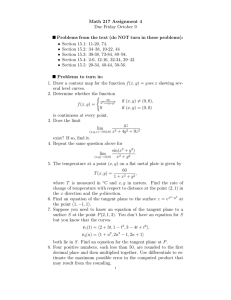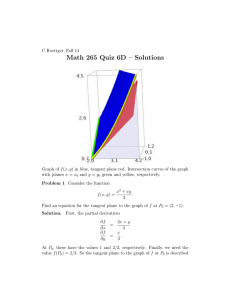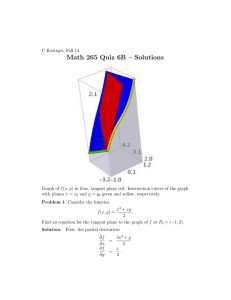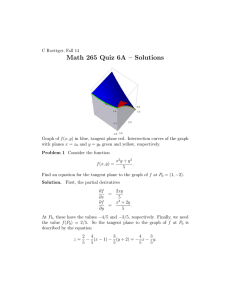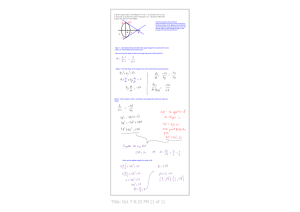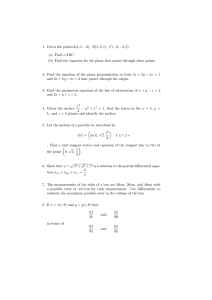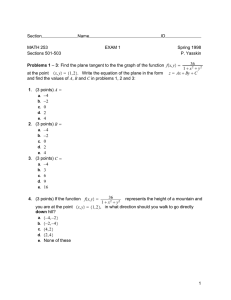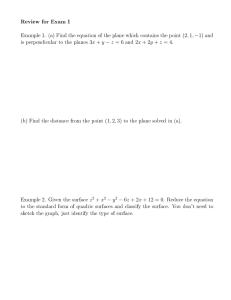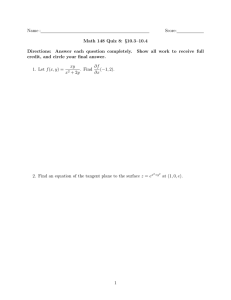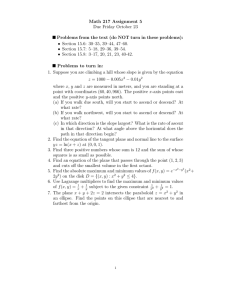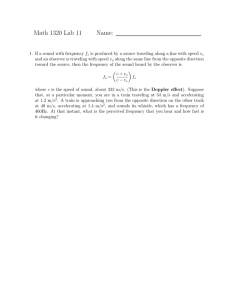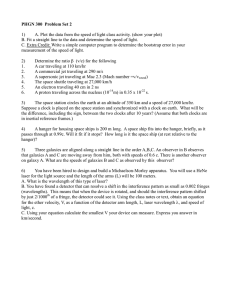Math 263 Assignment 4 Due October 3
advertisement
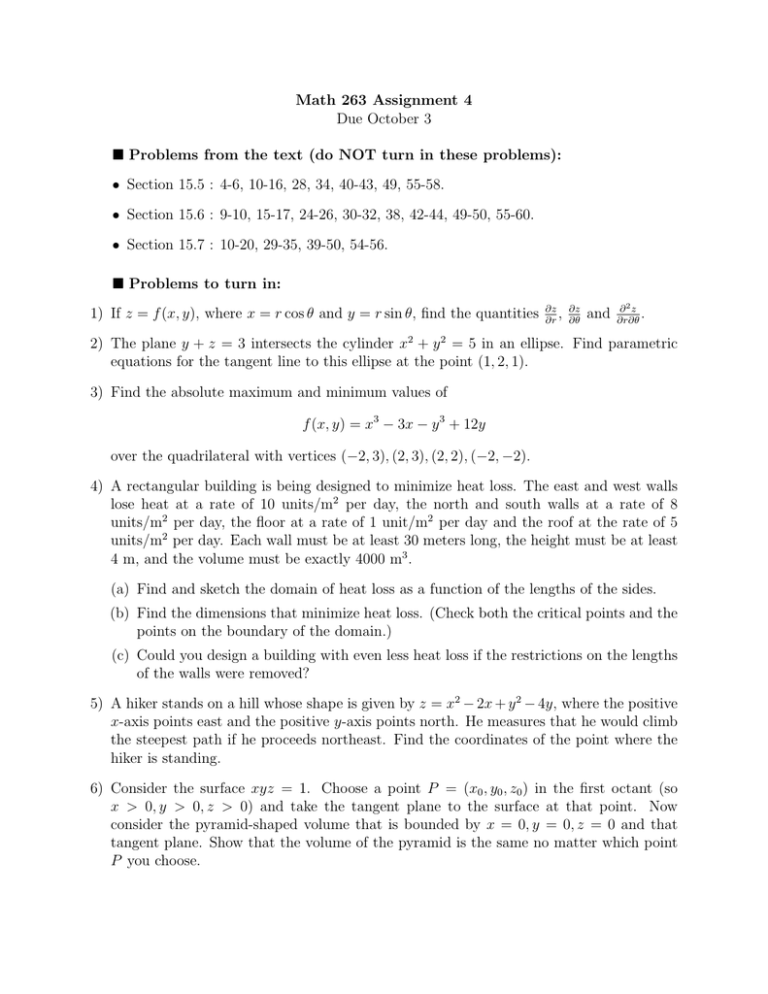
Math 263 Assignment 4 Due October 3 Problems from the text (do NOT turn in these problems): • Section 15.5 : 4-6, 10-16, 28, 34, 40-43, 49, 55-58. • Section 15.6 : 9-10, 15-17, 24-26, 30-32, 38, 42-44, 49-50, 55-60. • Section 15.7 : 10-20, 29-35, 39-50, 54-56. Problems to turn in: 1) If z = f (x, y), where x = r cos θ and y = r sin θ, find the quantities ∂z ∂z , ∂r ∂θ and ∂2z . ∂r∂θ 2) The plane y + z = 3 intersects the cylinder x2 + y 2 = 5 in an ellipse. Find parametric equations for the tangent line to this ellipse at the point (1, 2, 1). 3) Find the absolute maximum and minimum values of f (x, y) = x3 − 3x − y 3 + 12y over the quadrilateral with vertices (−2, 3), (2, 3), (2, 2), (−2, −2). 4) A rectangular building is being designed to minimize heat loss. The east and west walls lose heat at a rate of 10 units/m2 per day, the north and south walls at a rate of 8 units/m2 per day, the floor at a rate of 1 unit/m2 per day and the roof at the rate of 5 units/m2 per day. Each wall must be at least 30 meters long, the height must be at least 4 m, and the volume must be exactly 4000 m3 . (a) Find and sketch the domain of heat loss as a function of the lengths of the sides. (b) Find the dimensions that minimize heat loss. (Check both the critical points and the points on the boundary of the domain.) (c) Could you design a building with even less heat loss if the restrictions on the lengths of the walls were removed? 5) A hiker stands on a hill whose shape is given by z = x2 − 2x + y 2 − 4y, where the positive x-axis points east and the positive y-axis points north. He measures that he would climb the steepest path if he proceeds northeast. Find the coordinates of the point where the hiker is standing. 6) Consider the surface xyz = 1. Choose a point P = (x0 , y0 , z0 ) in the first octant (so x > 0, y > 0, z > 0) and take the tangent plane to the surface at that point. Now consider the pyramid-shaped volume that is bounded by x = 0, y = 0, z = 0 and that tangent plane. Show that the volume of the pyramid is the same no matter which point P you choose. 7) If a sound with frequency fs is produced by a source traveling along a line with speed vs and an observer is traveling with speed v0 along the same line in the opposite direction toward the source, then the Doppler effect dictates that the frequency of the sound heard by the observer is c + v0 f0 = fs c − vs where c is the speed of sound, about 332 m/s. Suppose that at a particular moment, you are in a train traveling at 34 m/s and accelerating at 1.2 m/s2 . A train is approaching you from the opposite direction on the other track at 40 m/s, accelerating at 1.4 m/s2 , and sounds its whistle, which has a frequency of 460 Hz. At that instant, what is the perceived frequency that you hear and how fast is it changing?
